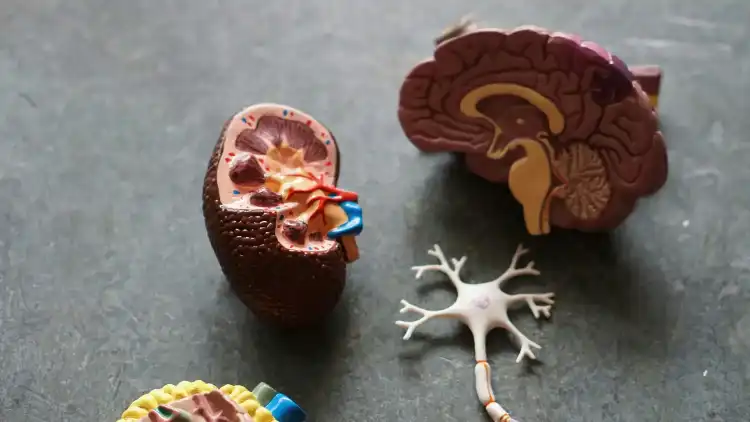While we know our brain controls our moods and behavior, a growing body of evidence suggests we are overlooking another critical player in our neurobiology: the gut. The relationship between the trillions of bacteria in your digestive tract and your brain is known as the gut-brain axis. This complex connection means your gut microbiome can significantly influence your nervous, endocrine, and immune systems, effectively acting as a ‘second brain’.
Table of Contents
More Than Just Digestion: The Power of Your Microbiome
When you think of bacteria, you might think of germs that cause illness. However, our bodies rely on a vast community of “good” bacteria, primarily in the intestines, to function properly. These microorganisms are essential for breaking down food, producing vital nutrients, and defending us against harmful pathogens. But their role appears to be far more extensive, involving direct and indirect communication with the brain.
How the Gut Talks to the Brain: Three Key Pathways
Scientists have proposed three primary ways that gut microbes can send signals to the brain.
- Direct Nerve Stimulation: Some gut bacteria can produce neurotransmitters—the same chemicals your brain uses to transmit nerve impulses. For instance, certain species can produce serotonin, a key neurotransmitter for regulating mood and appetite. These chemicals can trigger neurons in your digestive tract, which then send signals directly to your brain via the large vagus nerve.
- Chemical Messengers (Metabolites): When gut bacteria break down the food you eat, they release by-products called metabolites. These molecules can stimulate the cells lining your gut to increase their own production of neurotransmitters, which in turn activate the vagus nerve. For example, some microbes produce fatty acids that promote serotonin production in gut cells.
- The Immune System Connection: Gut bacteria can also influence the brain indirectly by activating the immune system. They can stimulate immune cells to release small proteins called cytokines, which travel through the bloodstream to the brain. These proteins are thought to influence the activity of microglia (the brain’s own immune cells), which play a role in regulating appetite and metabolism.
The Link to Health and Disease
Although human studies are still limited, animal research has linked the activity of gut bacteria to a wide variety of conditions, including:
- Parkinson’s disease
- Depression and anxiety
- Schizophrenia
- Obesity
- Cardiovascular disease
If these links are confirmed in humans, it could revolutionize how we treat certain neurological and metabolic disorders. In the future, doctors might prescribe specific probiotic diets to supplement traditional treatments.
How to Support Your Gut-Brain Axis
The communication between your gut and brain is a two-way street. You can take steps to promote a healthy microbiome.
- Positive Influences: Incorporate probiotics (supplements and fermented foods like kimchi and sauerkraut) and prebiotics (high-fiber foods that nourish good bacteria) into your diet.
- Negative Influences: Pathogenic (harmful) bacteria and the overuse of antibiotics can disrupt the delicate balance of your gut microbiome.
More Topics
- The Science Behind Your Accent – Understanding the Human Mind
- Why Do We Lie – Understanding the Human Mind
- Brain Surgery – Understanding the Human Mind
- How to Think Yourself Smart – Understanding the Human Mind
- Escape Room Psychology – Understanding the Human Mind
- How Optical Illusions Work – Understanding the Human Mind
- How We Learn – Understanding the Human Mind

